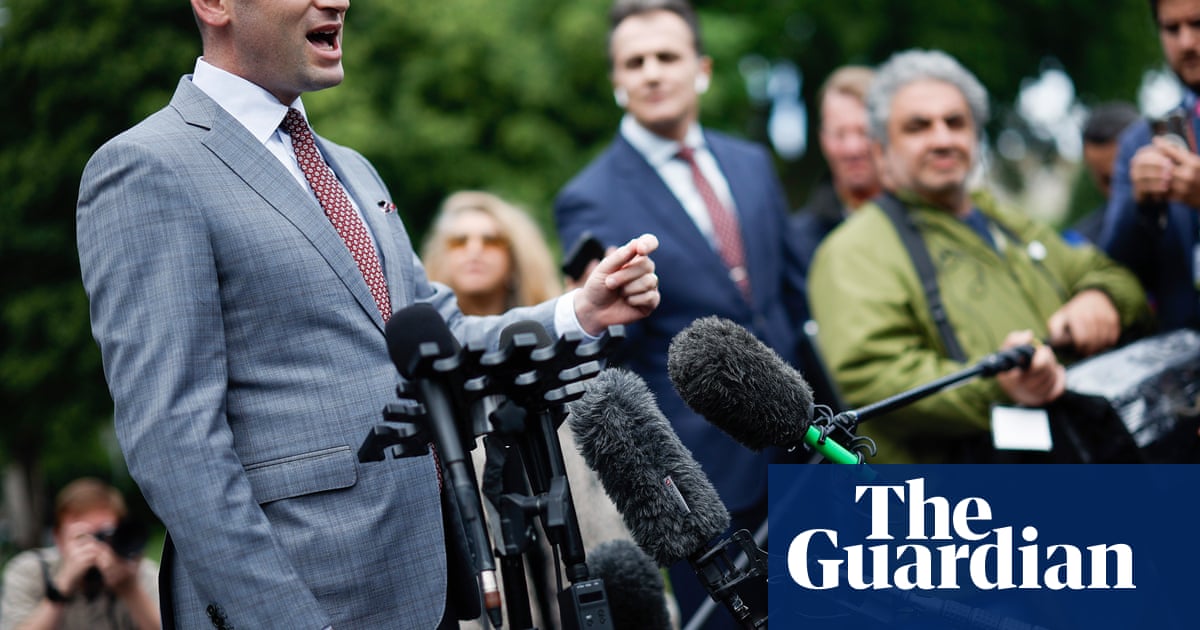Trump Administration Considers Suspending Habeas Corpus Amid Controversial Deportation Efforts











2025-05-09T21:11:00Z

The Trump administration is contemplating a significant and controversial legal move: the suspension of the writ of habeas corpus, a fundamental legal right that allows individuals to challenge their detention in court. This declaration was made by Stephen Miller, a prominent adviser in the White House, during a press conference on Friday, prompting widespread concern among legal experts and civil liberties advocates.
Miller stated, “The constitution is clear, and that of course is the supreme law of the land, that the privilege of the writ of habeas corpus could be suspended in time of invasion. So that’s an option we’re actively looking at. A lot of it depends on whether the courts do the right thing or not.” His remarks suggest a willingness to leverage this constitutional provision if deemed necessary, particularly in the context of the administration's aggressive immigration policies.
The U.S. Constitution explicitly states, “The Privilege of the Writ of Habeas Corpus shall not be suspended, unless when in Cases of Rebellion or Invasion the public Safety may require it.” Historically, this writ has been suspended only four times in the nation's history, notably during the Civil War under President Abraham Lincoln. Other instances include the fight against the Ku Klux Klan in the 19th century, in the Philippines in 1905, and subsequent to the attack on Pearl Harbor during World War II.
The potential suspension of habeas corpus represents a drastic escalation in the administration's approach to immigration enforcement, which critics argue undermines the rule of law. This move could allow for deportations without providing individuals the opportunity to contest their removals in court, fundamentally challenging long-established legal protections.
Stephen Miller has been a vocal proponent of stringent immigration policies and is known for advocating a maximalist approach to mass deportations. Currently, the U.S. government has produced scant evidence to substantiate many of its deportation efforts, raising concerns over due process. In certain troubling cases, individuals who have discussed their support for Palestinian rights have faced deportation attempts despite being lawful students in the U.S.
Several immigrants targeted for deportation by the Trump administration, including Mahmoud Khalil and Rümeysa Öztürk, have already filed habeas petitions to challenge the government's actions against them. This legal recourse highlights the ongoing struggle for many individuals seeking to defend their rights under the current administration.
In addition to the proposed suspension of habeas corpus, the administration has previously sought to invoke the Alien Enemies Act, an antiquated law established in the 18th century, which grants the president the power to deport individuals during wartime. This approach has raised alarms about the potential for misuse of executive power.
To justify its aggressive immigration stance, the Trump administration has argued that the U.S. faces an “invasion” from groups such as Tren de Aragua, a violent gang originating from Venezuela. However, multiple judges have dismissed this characterization, stating that the country is not under an invasion, and have attempted to block the administration's removal efforts.
Despite judicial pushback against his policies, President Trump has frequently criticized judges who rule against his administration and, on occasion, has openly defied court decisions, raising further questions about the administration's respect for the rule of law and judicial authority.
 Malik Johnson
Malik Johnson
Source of the news: The Guardian